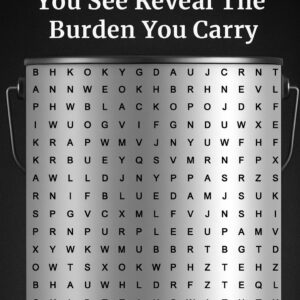Nine-in-ten Americans believe in a higher power, but only a slim majority believe in God as described in the Bible.

Previous have shown that the share of Americans who believe in God with absolute certainty has declined in recent years, while the share saying they have doubts about God’s existence – or that they do not believe in God at all – has grown.
These trends raise a series of questions: When respondents say they don’t believe in God, what are they rejecting? Are they rejecting belief in any higher power or spiritual force in the universe? Or are they rejecting only a traditional Christian idea of God – perhaps recalling images of a bearded man in the sky? Conversely, when respondents say they do believe in God, what do they believe in – God as described in the Bible, or some other spiritual force or supreme being?
A new Pew Research Center survey of more than 4,700 U.S. adults finds that one-third of Americans say they do not believe in the God of the Bible, but that they do believe there is some other higher power or spiritual force in the universe. A slim majority of Americans (56%) say they believe in God “as described in the Bible.” And one-in-ten do not believe in any higher power or spiritual force.
In the U.S., belief in a deity is common even among the religiously unaffiliated – a group composed of those who identify themselves, religiously, as atheist, agnostic or “nothing in particular,” and sometimes referred to, collectively, as religious “nones.” Indeed, nearly three-quarters of religious “nones” (72%) believe in a higher power of some kind, even if not in God as described in the Bible.
The survey questions that mention the Bible do not specify any particular verses or translations, leaving that up to each respondent’s understanding. But it is clear from questions elsewhere in the survey that Americans who say they believe in God “as described in the Bible” generally envision an all-powerful, all-knowing, loving deity who determines most or all of what happens in their lives. By contrast, people who say they believe in a “higher power or spiritual force” – but not in God as described in the Bible – are much less likely to believe in a deity who is omnipotent, omniscient, benevolent and active in human affairs.





